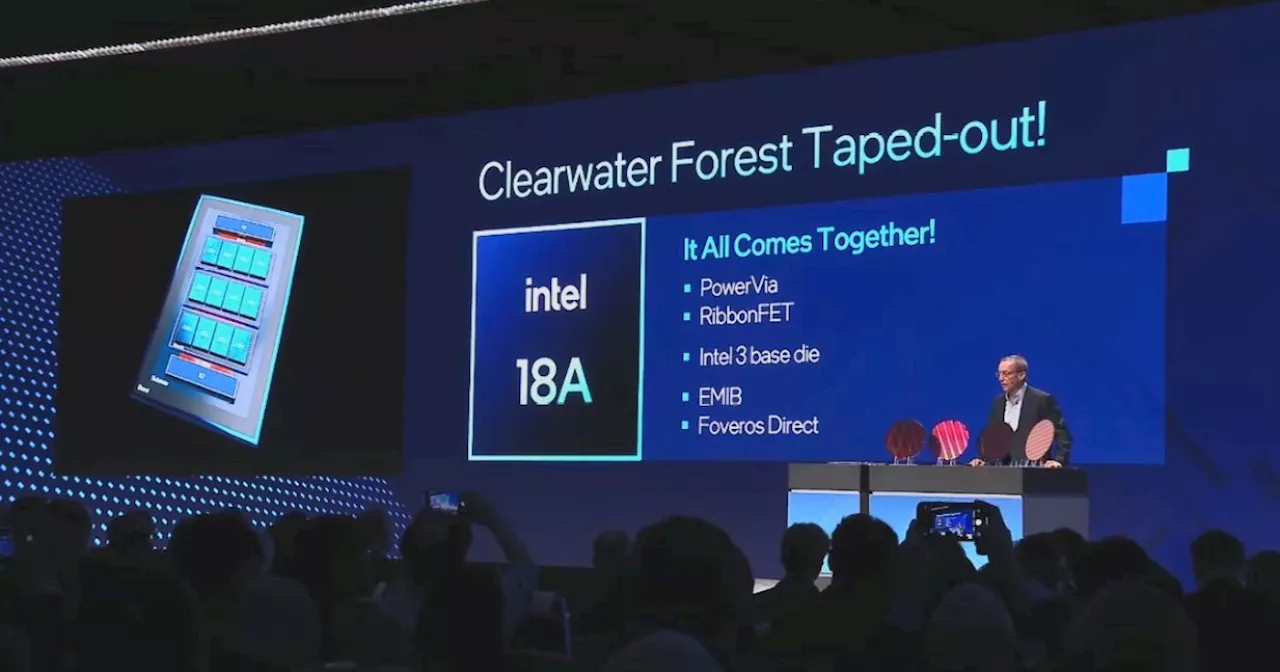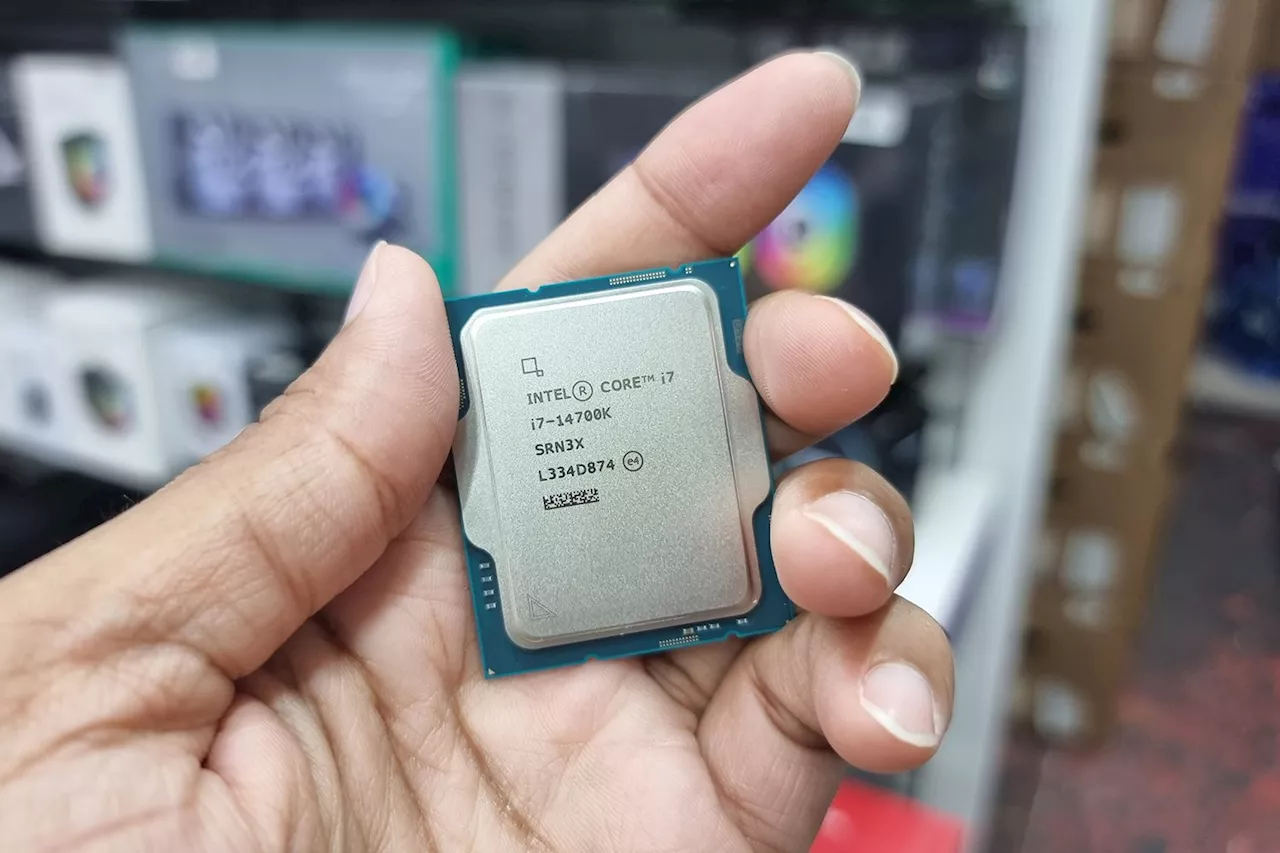Intel is having a really rough time right now, but it's bad news for CPUs as a whole if the company fails.
This story is part of Jacob Roach's ReSpec series, covering the world of PC gaming and hardware. Intel can’t catch a break. The instability saga we’ve witnessed over the past few months, along with a historically disastrous earnings report for the company, has led Intel into some pretty bleak territory. The company even postponed its Innovation event this year; meanwhile, shareholders are filing a lawsuit against Team Blue. No matter how you slice it, Intel is having a bad time right now.
Get your weekly teardown of the tech behind PC gaming Check your inbox! Privacy Policy Dynamics of a duopoly Tech is dominated by duopolies. There’s Windows and macOS, Android and iOS, Nvidia and AMD, and of course AMD and Intel. It’s not a stretch to call these duopolies, either — literally every one of those examples is listed as an example on the Wikipedia page talking about duopolies.
That experience is powerful, and it leads a lot of enthusiasts to form into camps about the products they purchase. There’s the fan culture surrounding AMD and Intel, where fans will defend their company of choice or, more often than not, dogpile on the opposing company when things go wrong. That’s the consequence of a duopoly. When the balance of power shifts dramatically, it hurts the market as a whole. To be clear, that’s not what’s happened yet. But with the string of issues Intel is facing right now, it’s hard to imagine the company will be able to turn things around with the release of Arrow Lake in the next generation, even if they’re fantastic CPUs that don’t have the same stability issues.
AMD and Intel both have alternatives to what Nvidia is offering in graphics cards, but when Team Green controls 88% of the discrete GPU market — per Jon Peddie Research’s latest report — the company really doesn’t need to push the envelope. Even with competitors, Nvidia’s dominance dictates the price and quality of GPUs. That’s why we’ve seen cards like AMD’s RX 7900 XTX launch at $1,000 in this past generation.
When an overwhelming market leader emerges, it leads to higher prices and a consistent cadence of products that push the needle just enough to justify a new release. In an ideal world, we’d have two companies with a nearly even market split. That leads to both leapfrogging each other on performance and a ruthless battle on pricing, which is a dynamic we saw in action with Intel’s 12th-gen and AMD’s Ryzen 5000 options.
AMD Cpus Intel PC Gaming Respec
United States Latest News, United States Headlines
Similar News:You can also read news stories similar to this one that we have collected from other news sources.
 Intel’s BIOS updates for crashing CPUs are now rolling outAsus and MSI are rolling out new BIOS updates to address crashing issues with Intel’s 13th and 14th Gen Raptor Lake desktop CPUs. It’s time to update your BIOS immediately.
Intel’s BIOS updates for crashing CPUs are now rolling outAsus and MSI are rolling out new BIOS updates to address crashing issues with Intel’s 13th and 14th Gen Raptor Lake desktop CPUs. It’s time to update your BIOS immediately.
Read more »
 This new patch might finally fix the issues with Intel CPUsIntel's partners are beginning to release microcode patches that might fix the problems with 13th- and 14th-gen processors.
This new patch might finally fix the issues with Intel CPUsIntel's partners are beginning to release microcode patches that might fix the problems with 13th- and 14th-gen processors.
Read more »
 Intel’s crashing 13th and 14th Gen Raptor Lake CPUs: all the news and updatesIntel has now extended its warranty by two full years on 24 different 13th Gen and 14th Gen desktop chips which are potentially susceptible to permanent damage. We’re keeping track of the fixes here.
Intel’s crashing 13th and 14th Gen Raptor Lake CPUs: all the news and updatesIntel has now extended its warranty by two full years on 24 different 13th Gen and 14th Gen desktop chips which are potentially susceptible to permanent damage. We’re keeping track of the fixes here.
Read more »
 Intel finally delivers some much-needed good news on its CPUsIntel is on track with its 18A process and is aiming to tape out the chip design in the first half of 2025.
Intel finally delivers some much-needed good news on its CPUsIntel is on track with its 18A process and is aiming to tape out the chip design in the first half of 2025.
Read more »
 Intel Extends Warranty for 13th and 14th Gen CPUs Amid Chip DebacleIntel is extending the warranty of its 13th and 14th Gen chips after ongoing chip instability issues as a show of good faith to its customers.
Intel Extends Warranty for 13th and 14th Gen CPUs Amid Chip DebacleIntel is extending the warranty of its 13th and 14th Gen chips after ongoing chip instability issues as a show of good faith to its customers.
Read more »
 Gamers are flocking to return Intel CPUs — and some are permanently damagedA retailer has gone on the record about Intel's instability problems and claims high return rates for 13th-gen and 14th-gen CPUs.
Gamers are flocking to return Intel CPUs — and some are permanently damagedA retailer has gone on the record about Intel's instability problems and claims high return rates for 13th-gen and 14th-gen CPUs.
Read more »
